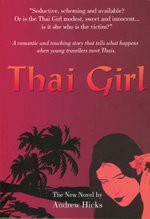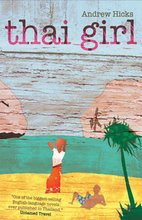



Spot the photographer reflecting!
For a week or two Cat and I are in Bangkok renewing my annual visa and doing other boring stuff. We’re staying in our studio apartment (concrete cell more like) off Sukhumvit Soi 71 and I’m busily renewing my love hate relationship with this bizarre, concrete city.
Bangkok, the City of Angles is a teeming ant heap of urban ugliness, a tough place where migrant workers on dirt poor wages just manage to get by while the Mercedes swish past in the street. The lucky few move from the cool of the Skytrain into the marble shopping malls without ever coming down to earth, the beggars crawl on their faces on the pavement and on the over-loaded green minibus bus down soi 71, while I stand bent double the nice lady who’s got a seat politely offers to hold my shopping bags for me.
Despite the insane struggle to survive that Bangkokians face every day, there’s still a softness to the people, a gentleness that’s perhaps unique in the big cities of the world. There’s no pushing to get on the bus and as you ride the escalator up to the Skytrain, nobody bothers to quicken their pace even though a train’s just drawn into the platform. In the roughest places there’s a graciousness perhaps because so many of the populace were born in the countryside and bring with them their fine rural manners.
These are the poor migrant labourers on whose backs this city’s prosperity depends, who as construction workers live in appalling conditions, who drive the taxis, collect the rubbish, do the cleaning and work in the garment, shoe and chicken factories, who hold the place together for minimal pay. Without them Bangkok and Thailand too just wouldn’t function, yet they seem to count for very little in the political priorities.
Nonetheless, it’s a dramatic city with some fine architecture, glittering towers standing alongside the shanties, the eight lane expressways soaring by above, high above the pushcarts and peasants in straw hats who carry their loads in baskets swung across bent shoulders. And once again they seem to be building upwards like there’s no tomorrow.
I sometimes wonder how Bangkok actually functions. I first came here in the mid-seventies and it was exactly the same then, only smaller. The traffic was locked solid, at the airport the planes taxied through the floods, the streets were a tangled spaghetti of electric cables and drifting plastic and the same seething mass of humanity was churning, ever churning without pause or rest.
Thirty years later, now perhaps twice the size with ten million souls, it’s a miracle that Bangkok’s still functioning and hasn’t subsided into terminal chaos. How do they manage to keep up the supply of power, bring food to the markets, deal with waste disposal, drainage? The last few days have seen some spectacular storms here and it’s been seriously flooded again. Built on a swamp, it only needs a little more global warming and it’ll sink under the waves.
And why’s half of Bangkok falling down? A hugh proportion of the stock of buildings even in central areas are under-used, un-maintained or derelict. There are vacant sites everywhere and massive multi-storey buildings whose construction abruptly stopped when the economy imploded during the Asian crisis of 1997 now stand as gaunt skeletons, as unfinished dreams. Yet prestige buildings are still being thrown up everywhere; condominiums, shopping malls, banks, corporate headquarters. They’re all magnificent, but it seems there’s little in Bangkok that falls between a palace and a slum.
Our modest apartment block, a six storey square slab of reinforced concrete is ordinary enough. It’s a strange place in an area that’s quite central and houses the better off among the migrant workers. It’s a place for transients and our neighbours have been bar girls and lady boys, Burmese labourers and one room with no less than thirteen Filipinas, young women looking for opportunity on thirty day tourist visas. Could Manila be even more hopeless than this?
Yet the streets around here, though drab and featureless are vibrant with life and colour, with markets set up every evening on dusty vacant sites and cooked food and small eating places everywhere. Sometimes you’d think you were at a market in Surin… this really is Isaan in the city and I like it for that.
Our block was probably built thirty years ago and it hasn’t had a lick of paint or any maintenance since. We’ve had our room for four years and nothing much has changed around here where I am now writing. When we first moved in the security system at the front door actually worked, as did the room telephone. How nice that was… and the lift used to be open in the mornings. The rent hasn’t gone down, but now, to economise on power, the lift only works for an hour or two in the evening. When I’ve walked back home from the dirty, heaving minibus on Soi 71 and climbed six floors up to our room which is often a truly torrid 35 degrees, I sometimes hate this place with a passion.
And I hate its owner too. She’s a pale, fat, middle aged woman plastered in makeup whose spectacular meanness everyone blames on her being Chinese. Apart from forcing us to climb the stairs to save her a few satang, she makes a killing on top of the rent by charging us double the going price for power and water.
When we asked to move rooms to escape the heat of the top floor, she took the opportunity to put up our rent for the identical room below. She charged the poor Filipina woman who was moving out 500 baht to clean the room, more than two days labour at local rates, yet when we moved in it was stinking and filthy. She’d withheld the Filipina’s deposit because the toilet pan was cracked and leaking, the door damaged and the ceiling fan creaking, but when we asked her to have them mended she ignored us. When eventually we move out, she’ll rub her pudgy hands and withhold our deposit too. If this woman’s making merit for the next life, at least she’ll come back as one of the ants that infest her crumby building.
You know the expression, ‘ants in your pants’? Yes, I’ve had some pretty bad experiences with the local Thai ants. Last time we were staying here, I got bitten something horrible and somewhere unmentionable. All I could do was rush into the shower and strip off, but not quickly enough to avoid some unpleasant bites that swelled up red and raw like the worst mosquito or sand fly bites.
They’re cunning too these particular ants. This time I’ve had little trouble so don’t always remember to check my undies before putting them on. Two days ago I was half way down the soi in smart shoes and trousers on the way to the Foreign Correspondants’ Club, just reaching the mini-mart and street market when without warning they struck in the same sensitive department. It was excruciating. It was agony. And they’d cunningly waited to make their move where I couldn’t rush into the shower and hunt them down. I was dead meat!
So what to do? Scream? Strip off? Grope frantically? In the middle of a busy street, none of this was in accordance with Thai culture! It was truly a difficult moment.
Even so, it wasn’t the worst experience I’ve had with tropical ants. You could well ask why some years ago I found myself half way up a tree in Singapore when red fire ants began biting me inside my clothes and in my hair, but that’s another story.
Suffice to say, I was maddened, frantic and it took long minutes to reach the ground and sprint for the shower. But by far the worst thing which almost caused me to end it all and jump out of the tree was this… the fire ants were walking over my face and even across my open eyeballs!















